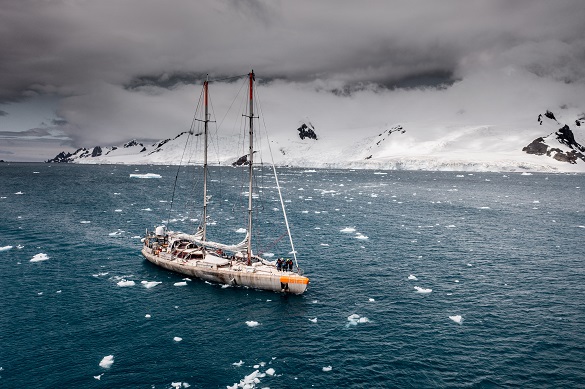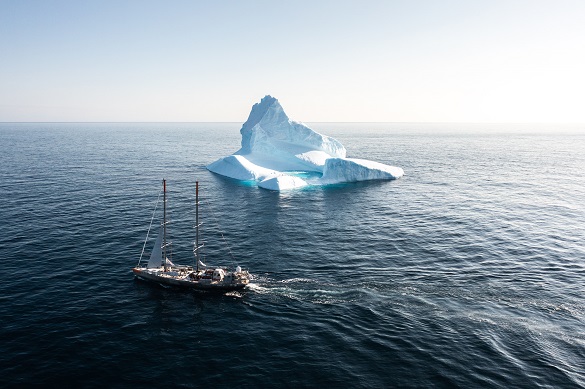
Image credit: Marin Leroux - PolaRYSE - Fondation Tara Océan
A University of Liverpool researcher will be the chief scientist of an international research expedition to the Antarctic that aims to better understand the mechanisms linking marine microbiomes and climate in the Weddell Sea.
Liverpool's Professor Alessandro Tagliabue is one of six scientists who will join the laboratory-schooner Tara as it undertakes the Antarctic component of its 'Mission Microbiomes'.
Mission Microbiomes is a two-year expedition that will cover 70,000 kilometres in the South Atlantic from Chile via Antarctica to South Africa as it studies the benefits of ocean microbiome and its interactions with the climate and pollution.
Professor Tagliabue will be leading the Antarctic leg of the expedition as it voyages from King George Island through the Weddell Sea and back across Drake Passage to Chile, which will take around four to five weeks. The voyage will sample an environmental gradient around the Antarctic Peninsula out into the Weddell Sea itself and perform a process study around a large iceberg.
This expedition aims to shed light on how climate change may affect the structure and function of marine microbiome, with implications for the response of ocean ecosystems and its role in regulating climate.
Mission Microbiomes is part of the AtlantECO project, co-financed by the European Commission, that brings together 36 scientific institutions of Europe, Brazil and South Africa. There are around six scientists on the schooner Tara itself for each leg.
Tara is a 36-meter research schooner that undertakes expeditions to learn more about the world's ocean and outreach towards the broader public, youth and policy makers. She has been owned and deployed by the nonprofit Tara Ocean Foundation since 2003.

Image credit: Marin Leroux – PolaRYSE – Fondation Tara Océan
The Tara Ocean Foundation is the first public interest foundation in France dedicated to the Ocean. They carry out innovative and pathbreaking scientific research in collaboration with international laboratories of excellence to explore, understand and anticipate changes occurring in the Ocean associated with climate and environmental risks.






